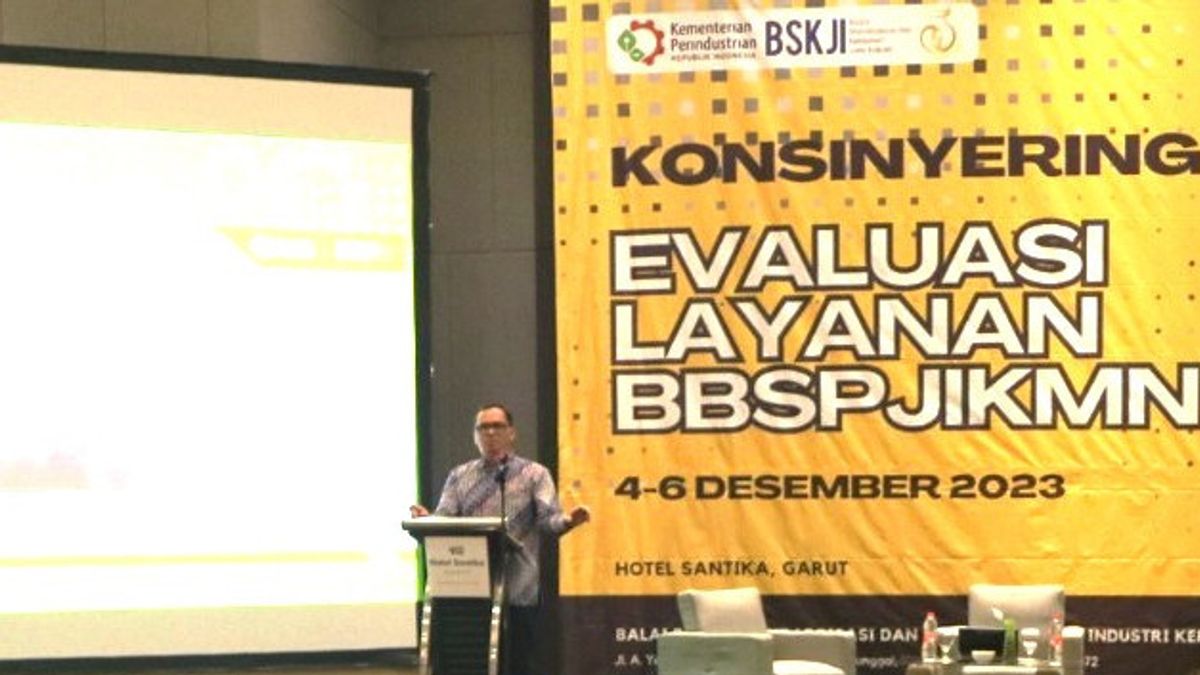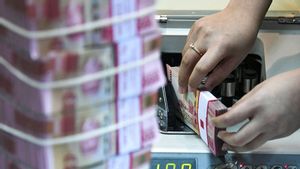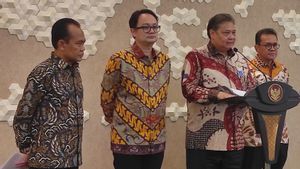
JAKARTA - The ceramic industry in Indonesia has not fully recovered. Therefore, the Ministry of Industry (Kemenperin) through the Standardization and Industrial Services Policy Agency (BSKJI) continues to strive to increase the competitiveness of the national ceramic industry which is considered prospective following property and housing growth.
Head of BSKJI Andi Rizaldi said, in facing the opportunities and challenges of the non-metallic ceramic and mineral industry, his party encourages technical implementing units (UPT) within the BSKJI environment to gradually go to the Public Service Agency (BLU), by improving service quality to industry and expanding the scope of services.
In this case, its role is carried out by the Center for Standardization and Services of the Ceramic and Non- Metal Mineral Industry (BBSPJIKMN).
"BBSPJIKMN has an important role in ensuring that the commodity ceramics and non-metallic minerals produced by the domestic industry meet applicable quality standards," Andi said in a written statement received by VOI, Thursday, December 7.
Andi said the industry needs to be encouraged. This is because the ceramic industry and its related sectors, such as tile manufacturers, sanitary, tableware, glass, refraktorial, and other non-metal mineral products, have made a significant contribution to boosting the national economy.
"Moreover, the development of investment in the ceramic industry in Indonesia continues to grow so that it spurs in terms of capacity, foreign exchange gain, and employment," he said.
Therefore, BBSPJIKMN conducts Service Evaluation Consinyering in Garut, West Java, on December 4-6, 2023.
Head of BBSPJIKMN Azhar Fitri said the consignment activity aims to review the services provided and evaluate and ensure that the service is in accordance with the set standards.
"In addition to providing discussion space for industry and service providers, we will continue to improve the quality of sustainable services, and be able to establish good cooperation with various parties," he said.
In 2023, BBSPJIKMN itself has provided services to more than 485 partners, both from small and medium industries, large industries, the world of education and government agencies.
"Meanwhile, what we have done includes industrial technical service activities in the form of certification service, testing, calibration, technical guidance, optimizing the utilization of industrial technology, consulting, as well as designing and designing industry," he said.
관련 항목:
Furthermore, Azhar said, his party is trying to improve service quality by focusing on the competence of human resources as well as expanding the range of services and adding to the types of services that can contribute to improving the national ceramic industry.
"With the increasing range of services, it is hoped that BBSPJIKMN can synergize with various stakeholders in order to increase the competitiveness of the national ceramic industry," he added.
Based on a report from the Indonesian Keramic Industry Association (ASAKI), ceramic production in Indonesia in 2023 is projected to be 551 million square meters and will be increased to 625 million square meters by 2024.
Meanwhile, the current utilization rate has reached 78 percent and will be increased to 82 percent by 2024.
The English, Chinese, Japanese, Arabic, and French versions are automatically generated by the AI. So there may still be inaccuracies in translating, please always see Indonesian as our main language. (system supported by DigitalSiber.id)














